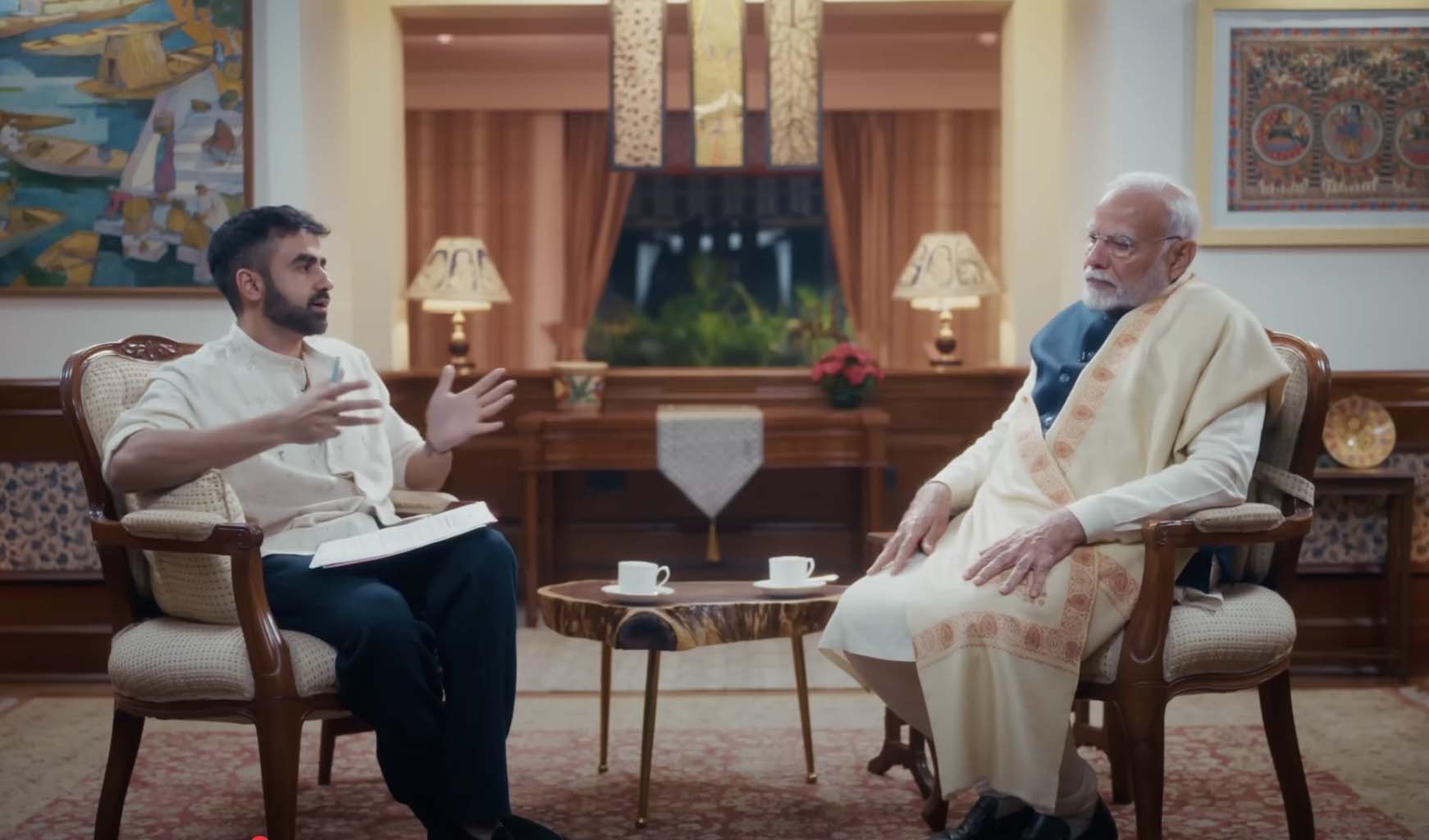NEW DELHI, Jan 10: Prime Minister Narendra Modi has expressed his readiness to set aside outdated notions and welcome new ideas, provided they align with his core principle of “nation first”.
During his inaugural podcast appearance, hosted by Zerodha co-founder Nikhil Kamath and released on Friday, Modi shared that he measures his success by his ability to cultivate a capable team, highlighting the presence of many promising young politicians. He refrained from specifying any individuals, stating that naming one would do a disservice to many others.
When asked by Kamath about plans for the future beyond his tenure, specifically regarding the training of trustworthy successors for the next 20-30 years, Modi replied, “I can identify individuals with significant potential. During my time in Gujarat, I expressed my intention to build a team for the next two decades. I am actively working towards this. My success depends on how well I prepare my team to handle various challenges. This is my measuring stick.”
He emphasized the need for politics to continuously welcome capable individuals who prioritize mission over personal ambition, summarizing his ideology as “nation first”.
When asked if he sees such potential in any young politicians, he acknowledged there are indeed many.
“They work diligently, driven by a mission. If I mention a name, it will be unfair to countless others. Numerous names and faces come to mind. I am aware of many individuals’ details, but it’s my duty to ensure fairness to all,” he remarked.
Modi revealed that his guiding principle in life is to make mistakes but to never act with ill intent.
He stated, “Upon becoming chief minister of Gujarat, I committed myself to exerting every effort. I will not act for my own benefit. Furthermore, I am human and capable of making mistakes. However, I will not act with bad intentions. This mantra has become foundational in my life. Mistakes are bound to happen; I must have made many. I am merely human, not divine.”
He pointed out that a third of seats for MLAs and Lok Sabha members will soon be reserved for women, noting their existing representation in local bodies due to 50 percent reservation in many states. He urged women to work on their capabilities to prepare for roles in assemblies and Parliament.
The prime minister characterized himself as not being a conventional politician, emphasizing that most of his time is dedicated to governance.
“I am compelled to deliver political speeches during elections. I dislike this necessity, but it is unavoidable. The majority of my time outside electoral periods is spent on governance. When I was out of power, my focus was entirely on organizational development and human resource advancement,” he explained.
Stressing that he has never restricted himself to a comfort zone, Modi noted that his propensity for risk-taking remains largely untapped. “My potential for risk-taking is substantially greater,” he added, attributing this to his lack of focus on personal comfort.
Reflecting on his third term, he stated that he feels more empowered and his aspirations have broadened. In his first two terms, he assessed his progress from the time he began. “Now, my vision is centered on a Viksit Bharat by 2047,” he continued.
Modi explained that his emphasis on “minimum government maximum governance” was misinterpreted by some as advocating for fewer ministers or government employees. This was never his intent; rather, he established distinct ministries for skill development and fisheries.
He clarified that the aim was to streamline bureaucratic processes, citing the reduction of over 40,000 compliance requirements and the repeal of more than 1,500 laws as steps towards this goal.
In the podcast, where various phases of his life were discussed, Modi portrayed himself as an average student who studied just to pass exams but was actively involved in various activities and maintained a sense of curiosity.
“My struggles have served as my university,” he remarked, sharing that his father prevented him from applying to a sainik school due to financial constraints. Nevertheless, he expressed that he was never disheartened by this decision. (AGENCIES)


Leave a Reply